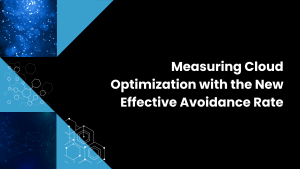Organizations are increasingly coming to the realization that data is a core strategic asset, the new source of competitive advantage. Success in today’s economy is predicated on how organizations leverage data as much as any other corporate function. The challenge organizations face, then, is how to leverage this asset to its maximum potential in ways that are as efficient as possible and also minimize risk.
This is no small feat. It involves data itself (identifying and managing sources of data), technology (tools and systems to ingest, process, store, analyze and share data), governance (ensuring data is used ethically and in compliance with relevant policies/regulations) and people (aligning various stakeholders and business objectives.)
Historically, there has been no one person within the enterprise responsible for the holistic management and use of data. Different departments within the same enterprise – even groups within departments – were often left to their own devices when it came to data management and analytics. The result is that in many enterprises today data is locked in various departmental silos, insights are not shared across departments, there are significant redundancies across departments related to data processing/storage/analytics, and nobody has an enterprise-wide view of how data is used.
This approach – or lack of an approach – is unsustainable and can expose enterprises to significant risk – both the risk of falling behind more data-savvy competitors and the risk of running afoul of legal and privacy regulations. Increasingly, however, enterprises are beginning to take the task of managing and leveraging data more seriously. In enterprises across industries, a new role is emerging to take on this task, that of the Chief Data Officer, or CDO.
While still being defined, at a high level the role of the CDO is to develop corporate strategy for managing and leveraging data that is in line with wider business objectives. Because data impacts all corners of the enterprise and represents the new source of competitive advantage, it makes sense to appoint a C-level executive who is responsible for devising and implementing a holistic approach to harnessing the full value of data across the entire enterprise.
As outlined above, this job involves not just data and technology, but governance and people as well. These governance and people-related responsibilities include:
- Devising and implementing rules and policies regarding the ethical and acceptable use of data within the enterprise, including who has access to various data sets and analytics;
- Ensuring that both internal and external (governmental) regulations are complied with and reported to the proper stakeholders (both internal auditors and external regulatory agencies);
- Facilitating communication and cooperation between various stakeholders within the enterprise, including line-of-business executives, IT, operations and rank-and-file business users;
- Selling the value of data and spurring adoption of a data-driven mindset throughout the organization — a transformational task if there ever was one.
Arguably, the CDO’s governance and people-related responsibilities are more challenging and, ultimately, more consequential than her data and technology-related responsibilities. While the CDO roe is a new one, feedback from current CDOs backs up this notion.
Case in point is the city of Philadelphia. The city appointed its first CDO in 2012 to, among other tasks, facilitate better sharing of data across city departments and to make more city data available to citizens. The CDO, Mark Headd, realized early success, but ultimately resigned in April after less than two years on the job. The reason, as outlined in this Technical.ly Philadelphia story, was frustration over his ability to get the city’s revenue department to share property tax data.
“Philadelphia is at a juncture where it is ready to take the next step in its open data evolution. To start sharing data across departments (hell, even across governments) and start identifying new ways of doing things — ways that are more efficient and more effective. I tried very hard to move us past this juncture and onto the next steps. I was not able to do so, and it became clear that I was never going to be able to do so.”
The head of the city’s revenue department cited privacy concerns for not sharing the data, not any technical obstacles. The city’s new CDO, Tim Wisniewski, has smartly recognized that in order for him to avoid his predecessors fate, building relationships with city officials must be one of his top priorities. His job, said Wisniewski, is 99 percent about people and 1 percent about technology. That’s good advice and a good approach for any new CDO.
Note: theCUBE will broadcast live from the MIT Chief Data Officer and Information Quality Symposium on July 23 and 24, 2014. Watch the live broadcast here and get involved in the conversation via CrowdChat here. And check out the below Cube Conversation exploring the emergence of the CDO.


